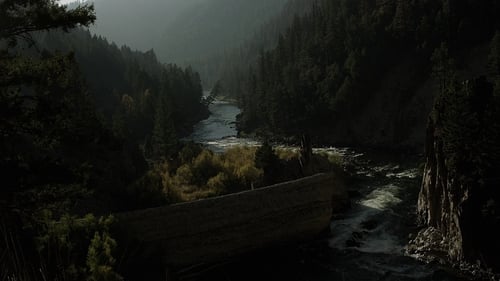
Music
Tonight the World draws from a cross-section of dream diaries kept by Martin’s grandmother, Susi Stiassni, who fled the imminent Nazi occupation of Czechoslavakia in 1938. Through five chapters, the film links as many dreams sited in Susi’s childhood home, Villa Stiassni, a modernist mansion built by Susi’s parents, who were prominent Jewish textile manufacturers in the industrial hub of Brno. Conjured in Susi’s imagination from her middle-age onwards, in the context of psychoanalysis, the dream diaries as a whole span 40 years and 40,000 dreams, but Martin’s selection focuses tightly on dreams about intruders within the Villa, recreating a narrative of threat and escape that parallels Susi’s lived experience. Retracing the legacy of her grandmother’s emotional history, Martin considers the unconscious underpinnings of intergenerational trauma, loss and resilience.

Wake Ensemble
Visionary artist Matthew Barney returns to cinema with this 3-part epic, a radical reinvention of Norman Mailer’s novel Ancient Evenings. In collaboration with composer Jonathan Bepler, Barney combines traditional modes of narrative cinema with filmed elements of performance, sculpture, and opera, reconstructing Mailer’s hypersexual story of Egyptian gods and the seven stages of reincarnation, alongside the rise and fall of the American car industry.

Music
Still Life gazes unflinchingly at the violence of war, observing the eerie architecture of the West Bank and Gaza Strip collapsed under Israeli occupation. This portrait provides brutal witness to how government sanctioned destruction metes upon structures of home and State. Unlike the mediated images of current warfare, Still Life examines the effects of the destruction of Occupation through the details of cinematic landscapes and its inherent inhabitants. In its relentless questioning reaffirmed with a unique and unremitting soundtrack by composer Zeena Parkins, Still Life forces us to focus on details of devastation.

Music
The Time We Killed portrays the inner life of a writer unable to leave her Brooklyn apartment on the brink of the US invasion of Iraq. Robyn Taylor tries to kick her growing agoraphobia by re-imagining her past and contemplating world events of the present. As Robyn begins to overcome the amnesia that afflicted her as an adolescent, she fears coming down with “the amnesia of the American people”.

Music
Sites Unseen is a 3 channel 16mm projection of the Jewish cemetary in Warsaw, a photograph of a great Aunt who died in Treblinka, and my late grandmother eating her morning cornflakes.

Original Music Composer
TREYF —“unkosher” in Yiddish— is an unorthodox documentary by and about two Jewish lesbians who met and fell in love at a Passover “seder”. With personal narration, real and imagined educational films, and haunting imagery, filmmakers Alisa Lebow and Cynthia Madansky examine the Jewish identity of their upbringings and its impact on their lives.

Harp
On February 14, 1995, Hole recorded a live acoustic performance in front of an audience at the Brooklyn Academy of Music in New York City. Along with a string ensemble, The group played a mix of hits off "Live Through This," plus new material, covers by Duran Duran and Donovan, and unreleased Nirvana track "You Know You're Right."

Sound
Sound composition by Zeena Parkins. Erotic dance performance by Goddess Rosemary.

Music
SSS is composed from footage of movement improvised on the streets of pre-gentrified East Village by Sally Silvers, Pooh Kaye, Harry Shepperd, Lee Katz, Kumiko Kimoto, David Zambrano, Ginger Gillespie, Mark Dendy, and others, painstaking synched to music previously improvised for the project at Noise New York by Tom Cora (cello), Christian Marclay (turntables), and Zeena Parkins (harp). Beauty emerging from rubble. (Henry Hills)







